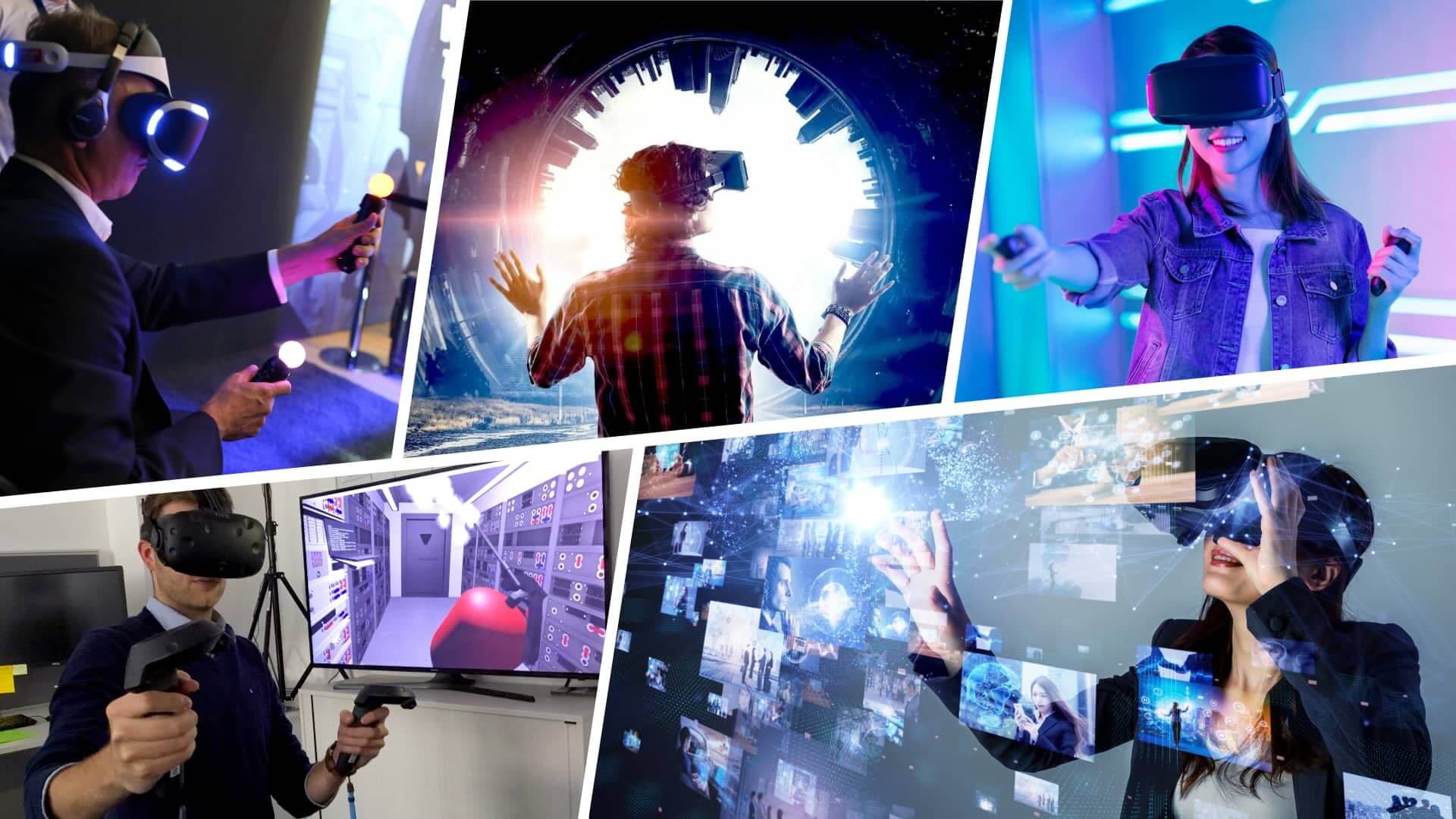The Curated News Hub
Your daily source for diverse news and insights.
Reality Check: Are We Living in a Virtual Playground?
Is our world just a virtual playground? Dive into the reality check and discover the truth behind our digital existence!
The Blurring Lines: How Virtual Reality is Redefining Our World
The rapid advancement of Virtual Reality (VR) technology is transforming various aspects of our lives, blurring the lines between the virtual and real worlds. As industries such as gaming, education, and healthcare increasingly adopt VR solutions, they are enhancing user experiences and offering unprecedented levels of engagement. For instance, in gaming, players can immerse themselves in lifelike environments, making decisions that feel impactful and real. Similarly, in education, VR is being utilized to create interactive learning modules, allowing students to visualize complex concepts and participate in simulations that enhance understanding and retention.
Moreover, the influence of Virtual Reality extends beyond entertainment and education into areas like mental health and therapy. Research shows that VR therapy can effectively treat conditions such as PTSD and anxiety by providing a safe space for individuals to confront their fears in a controlled environment. According to a report from Verywell Mind, this innovative approach not only helps individuals retrain their responses to traumatic stimuli but also offers an engaging way to develop coping mechanisms. As the lines continue to blur between our digital and physical experiences, VR paves the way for a future where our interactions with technology feel more authentic and intertwined with our daily lives.

Are We Living in a Simulation? Exploring the Concept of a Virtual Reality
The idea that we are living in a simulation has gained traction in both scientific and philosophical circles, igniting debates about the nature of reality. This concept suggests that our experiences could be the product of advanced technological simulations, much like the virtual realities in video games. The philosopher Nick Bostrom's Simulation Argument posits that if technology continues to advance, future civilizations might run countless simulations of their ancestors, making it probable that we are currently within one. So, how do we distinguish between what is real and what might be a carefully crafted illusion?
Many argue that emerging technologies, such as virtual reality (VR) and artificial intelligence (AI), illustrate the feasibility of such simulations. For instance, the rapid development of immersive VR experiences allows users to seamlessly interact with digital worlds that feel increasingly lifelike. As physicist David Deutsch suggests, the nature of computation could imply that the universe itself operates like a vast computational structure. This raises profound questions about consciousness and existence: if we can create such convincing realities, what is to say that we are not already part of one?
Reality vs. Virtuality: Understanding the Psychological Impact of Digital Environments
The distinction between reality and virtuality has become increasingly blurred in today's digital landscape. As individuals spend a significant portion of their lives immersed in virtual environments, understanding the psychological effects of these experiences is essential. Studies show that engagement in these digital spaces can affect mental health, leading to issues such as anxiety, depression, and social isolation. Furthermore, those who frequently navigate between these two worlds may find their perceptions of reality altered, as they begin to favor the convenience and escapism offered by digital interactions over face-to-face connections.
The psychological impact of digital environments can be profound, manifesting in various ways. For instance, while virtual reality (VR) offers unique opportunities for education and therapy, it can also create unrealistic expectations and perceptions. According to research from the National Institutes of Health, prolonged exposure to virtual realities can lead to a detachment from reality, sometimes referred to as digital dissociation. Furthermore, the addictive nature of digital platforms often fosters an environment where instant gratification takes precedence, potentially diminishing patience and resilience in real-life situations. Balancing the benefits of technological advancements with the risks they pose to our psychological well-being is crucial in an increasingly virtual world.